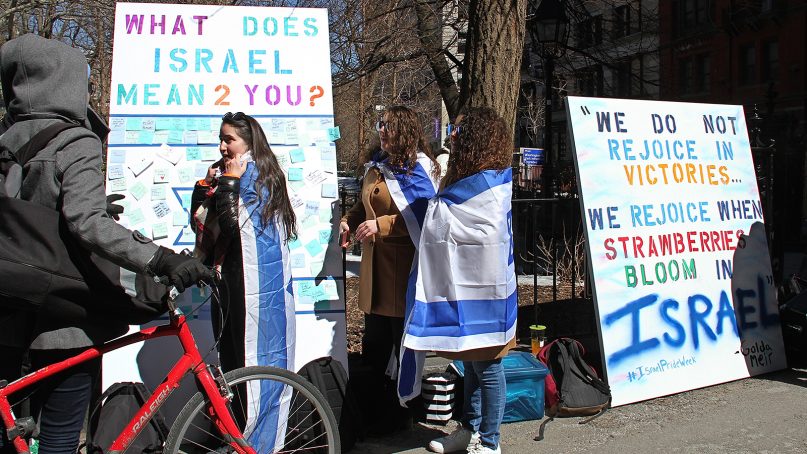(RNS) — This summer, New York University junior Jordana Meyer posted a photo of women tank drivers in the Israeli army to her Facebook page. The response was swift, and ugly:
“Zionist whore. You and your family should be gassed.”
“You are a terrorist.”
“You are more cruel than the Nazis … ”
In early August, Meyer, who is spending the fall semester studying in London, posted a response:
“The behavior and rhetoric that I and other pro-Israel students have come to accept as normal is absolutely NOT normal. THIS IS NOT OK.”
She went on: “I know that I cannot regard this behavior as representative of an entire group; it is simply not. It is extreme. But it is also far too common to ignore, and met with far too much silence by activists who have no problem speaking out on other issues.”
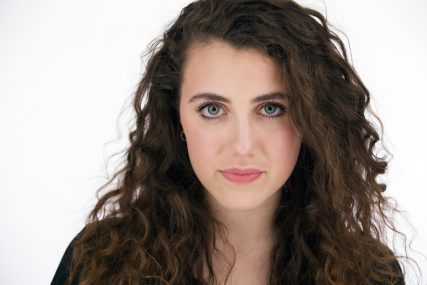
NYU student Jordana Meyer. Photo courtesy of Jordana Meyer
Jewish students such as Meyer who take pride in their faith, and in their support for Israel, are increasingly at odds with proponents of a movement that has taken root on college campuses known as boycott, divestment and sanctions, often abbreviated as BDS. The movement shuns Israel as a way of pressuring the country to end what it considers the occupation of Palestinian lands.
Some of the anti-Israel agitation takes place on social media, where proponents of Israel are increasingly facing harassment or hostility — sometimes purely political, but as often blatantly anti-Semitic.
But the most recent flare-up is happening in “real life,” as digital natives refer to the offline world: Two instructors at the University of Michigan recently declined to write letters of recommendation for two Jewish students applying to study abroad after learning that their destination was Israel.
Abigail Ingber, a junior at Michigan, asked cultural studies professor John Cheney-Lippold for a letter to study at Tel Aviv University. He initially agreed but later refused when he found out where Ingber wanted to study.
Jake Secker, also junior at Michigan, asked teaching assistant Lucy Peterson to write him a letter for a semester abroad, also at Tel Aviv University. She too agreed, then declined when Secker explained he wanted to study in Israel.
Both the professor and the teaching assistant said they had pledged to boycott Israeli institutions to show solidarity with Palestinians — a method of resistance that has become popular among academic associations that want to support BDS. The American Studies Association, the National Women’s Studies Association and the African Literature Association have all endorsed boycotts of Israeli institutions of higher learning.
The University of Michigan took Ingber’s side, after a group posted her email exchange with the professor on social media. The university disciplined Cheney-Lippold by denying him a merit raise and postponing his sabbatical.
The BDS episode at Michigan comes as a wide range of anti-Semitic attacks has made the start to the 2018-19 school year among the most tumultuous in recent memory.
Earlier this month, flyers blaming Jews for the sexual assault allegations against Supreme Court Justice Brett Kavanaugh were posted on two University of California campuses, Berkeley and Davis, as well as at Vassar College in New York state.
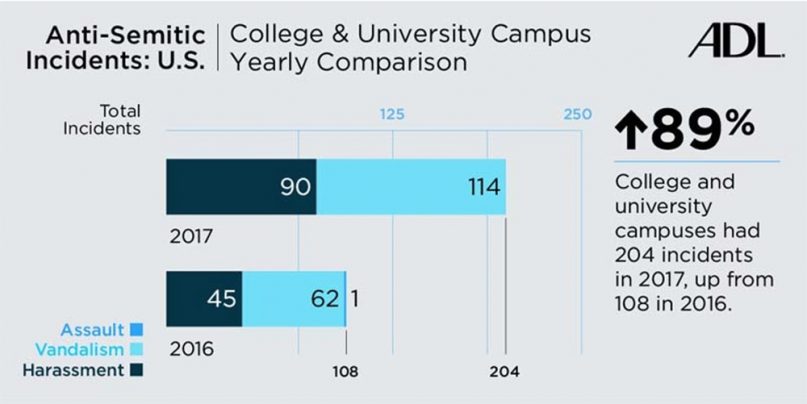
College and university campuses had 204 anti-Semitic incidents in 2017, up from 108 in 2016. Graphic courtesy of ADL
And at Roanoke College in Salem, Va., anti-Semitic flyers posted to utility poles this month were attributed to: “Your Local Stormer Book Club.”
“It’s not unreasonable that Jewish students, like all students, need to feel like they can study and learn in a safe environment on campus,” said Jonathan Greenblatt of the Anti-Defamation League. “When you have the kind of vandalism or harassment or propaganda, that can be deeply concerning because they create a climate of fear for Jewish students.”
Greenblatt notes there was an 89 percent increase in anti-Semitic incidents reported on college campuses in 2017 over the year prior.
In this climate, even Jewish students who have not personally been harassed by the boycott movement are feeling lonely and isolated.
Jamie Gottlieb, a Jewish studies major at American University in Washington, D.C., said she has begun to self-censor herself when she’s with friends who differ with her over support for the Jewish state.
“I hold back from expressing different political views I have, or different parts of my identity, because it makes other people uncomfortable because they have conflicting feelings about Israel,” she said.
Gottlieb, who plans to study abroad in Israel next semester, said she feels safe at American, one of about 20 universities across the country with a Center for Israel Studies that offers an academic minor. But she notes that American has not entirely escaped unrest. During Gottlieb’s freshman year, a swastika was scrawled on a whiteboard of a classroom. And last year, flyers proclaiming “No More Wars for Israel” were spotted in the School of International Service. The school has also had some racial tension after bananas were found hanging from strings fashioned in the shape of nooses.
The resistance from the Michigan instructors to study abroad programs in Israel, however, is new, and for many students, troubling.
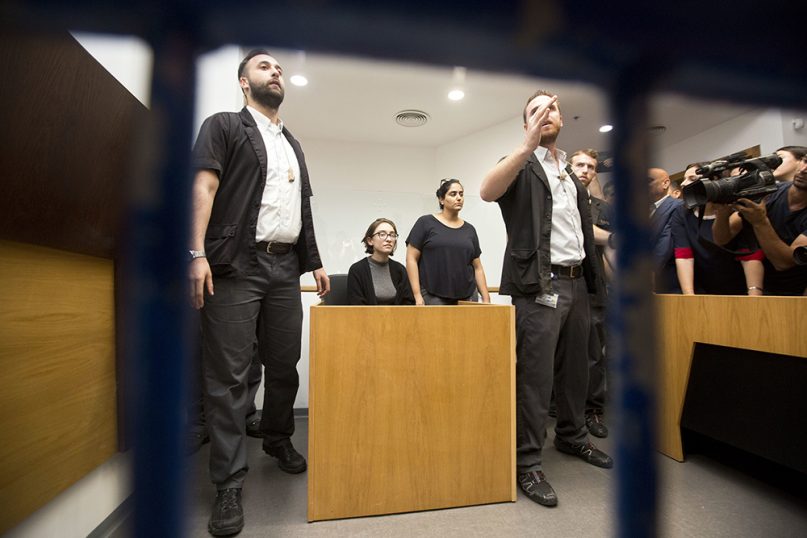
American Lara Alqasem, center, sits in a courtroom before a hearing at the district court in Tel Aviv, Israel, on Oct. 11, 2018. The graduate student has been held in detention at the country’s international airport since Oct. 2, 2018, over allegations that she promotes a boycott against the Jewish state. (AP Photo/Sebastian Scheiner)
Evan Weis of Indiana University said the experience of studying history and archaeology at Hebrew University in Jerusalem has been “difficult but worthwhile.”
“It forces you to confront your beliefs and re-evaluate them from new perspectives,” he said. “I will always support Israel’s right to exist but am not afraid to openly criticize the Israeli government when it acts in a way I don’t agree with.”
A total of 728 U.S. students came to study at Hebrew University during the 2017-2018 school year. Tel Aviv University drew about 1,000, as did other universities and colleges. Not all are Jewish, and certainly not all are supportive of Israel.
Lara Alqasem, a 22-year-old Floridian who was denied entry into Israel to begin her studies for a master’s degree at Hebrew University, is taking her appeal to Israel’s Supreme Court. Alqasem, whose father is of Palestinian heritage, has been detained at Ben-Gurion Airport since Oct. 2 over allegations that she is an anti-Israel boycott activist.
Last year, Israel’s Knesset passed a law that bars any foreigners who have publicly expressed support for boycotting Israel from entering the country.
American students studying in Israel said they wrestle with their own criticism of the government policies daily.
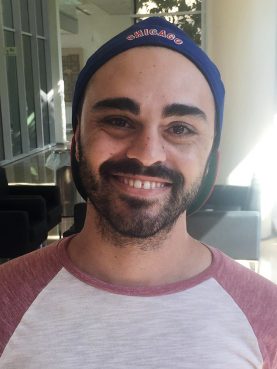
Itai Weiss. Photo courtesy of Itai Weiss
“Israel is a beautiful country, not perfect, but no country is perfect,” said Itai Weiss, an Californian pursuing a master’s in government, diplomacy and conflict resolution at the Interdisciplinary Center in Herzliya, near Tel Aviv. “To really understand Israel and all the nuance, you need to be here on the ground.”
Many American Jewish students said they don’t understand the singular focus on Israel when many other countries have worse civil rights and humanitarian problems.
And they say they are willing to engage with legitimate criticism of Israel. But they argue the BDS movement has become so virulently anti-Israel that many deny the right of the state to exist.
“At the end of the day, we all believe Israel has a right to exist,” said Adela Cojab, a Jewish Latina senior at NYU who founded the group Realize Israel to push back against BDS. “That’s so second nature to me. It sounds silly even saying it out loud.”
More recently, Cojab said, strained campus politics over Israel have devolved to where students and faculty want not only to boycott Israel but also organizations that affiliate with Israel, including her own.
Meyer, the NYU student who posted the photo of the Israeli women soldiers, wrote that she’s not giving up.
“I made a conscious decision to publicly refuse to apologize for my pride in and love for my people,” Meyer wrote. “Nobody should be made to feel like they cannot be proud of where they come from.”
(Yonat Shimron reported from North Carolina. Michele Chabin reported from Jerusalem.)
